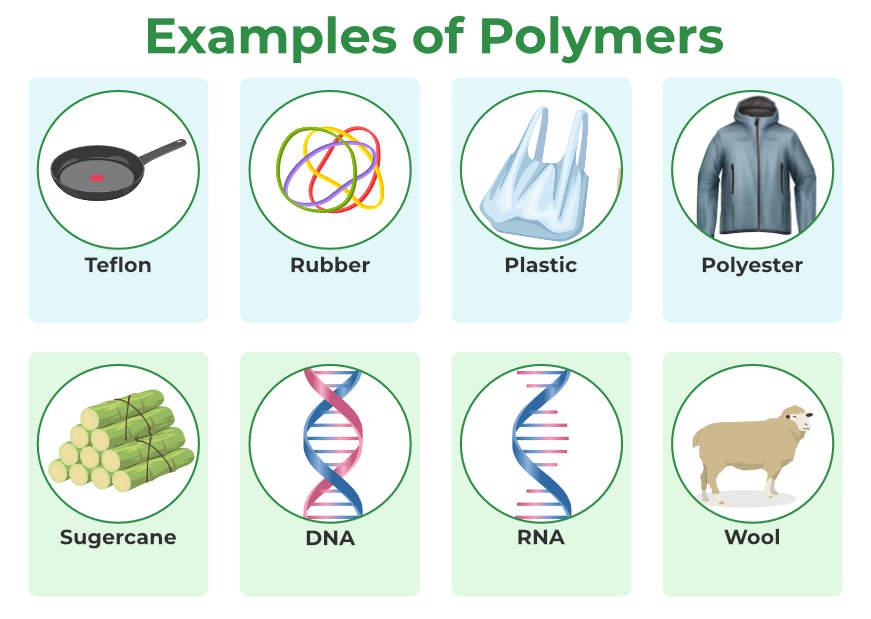Checking Out the Varied Applications and Benefits of Polymers in Different Industries
Polymers, with their varied variety of properties and performances, have actually become important in numerous sectors, each reaping one-of-a-kind benefits from their application. Polymers. From improving security and efficiency in the auto sector to revolutionizing medical gadgets in the medical care industry, polymers play a pivotal role. Furthermore, their environment-friendly nature is changing the landscape of sustainability methods. As we look into the depths of polymers in electronic devices, we discover innovative advancements, while their structural integrity changes the world of building and facilities. The pervasive influence of polymers across industries is a testimony to their versatility and versatility, shaping the future of numerous fields.
Automotive Industry Applications
Polymers play a crucial duty in boosting the efficiency and durability of numerous parts within the auto industry. These functional materials are thoroughly used in the manufacturing of different parts, ranging from indoor components to under-the-hood applications. One prominent use of polymers in the automotive market remains in the production of lightweight components. By replacing conventional metal components with polymer-based choices, vehicles can attain enhanced gas efficiency without jeopardizing on strength or safety and security.

Medical Care Market Benefits
In numerous health care applications, the benefits of using polymers are extensively acknowledged for their diverse series of useful residential properties. Polymers play a crucial function in the medical care market due to their versatility, biocompatibility, and cost-effectiveness. One of the key benefits of polymers in medical care is their capacity to be tailored to particular demands, such as versatility, longevity, and biodegradability, making them ideal for a large variety of clinical applications.
Polymer-based materials are thoroughly made use of in medical devices, such as catheters, implants, prosthetics, and drug distribution systems, as a result of their biocompatibility and capability to resemble all-natural tissues. These products can minimize the danger of allergies or rejections, improving person safety and results. In addition, polymers are lightweight, making them suitable for wearable medical devices and making sure client convenience.
Furthermore, polymers enable the advancement of innovative therapy approaches, such as hydrogels for cells design and nanocomposites for targeted drug shipment. Their ease of handling and sanitation makes them crucial for maintaining high standards of hygiene in medical care settings. In general, the diverse advantages of polymers add considerably to innovations in clinical innovation and individual care.
Environmental Benefits of Polymers

Additionally, polymers can add to power savings due to visit this site their lightweight nature. In markets such as transportation, lightweight polymer materials can assist minimize fuel usage and greenhouse gas exhausts. Furthermore, polymers can make it possible for the growth of energy-efficient products such as insulation materials that enhance energy conservation in buildings.
Moreover, polymers play an important role in minimizing water contamination. For instance, using polymer-based filtering systems can efficiently remove contaminants and impurities from wastewater, protecting water resources and ecosystems. On the whole, the ecological advantages of polymers make them useful properties in promoting sustainability and environment-friendly techniques across various markets.
Polymers in Electronic Devices and Innovation
Taking into consideration the boosting demand for ingenious and sustainable options in modern industries, the combination of innovative polymer innovations in the world of electronic devices and modern technology has actually become a critical strategy for check my blog driving effectiveness and efficiency. Polymers have revolutionized the electronic devices market by making it possible for the manufacturing of lighter, much more adaptable, and long lasting digital devices. From smartphones to clinical devices, polymers play an important duty in improving product layout and performance.
One substantial advantage of polymers in electronics is their insulating residential properties, which assist shield delicate digital components from environmental aspects and electrical disturbance. Additionally, polymers are important in the growth of versatile screens, wearable innovation, and printed electronic devices, offering countless opportunities for creating smart and interconnected gadgets.
Additionally, making use of polymers in electronic product packaging has caused improvements in miniaturization and thermal management, enhancing the general efficiency and integrity of digital systems. As modern technology remains to evolve, the flexibility and adaptability of polymers will definitely drive further development in the electronics industry, forming the future of technology.
Duty of Polymers in Construction and Framework
The combination of innovative polymer products in building and construction and framework tasks has changed the means structures are developed and built in modern-day times. Polymers use various advantages in the building industry because of their flexibility, resilience, and cost-effectiveness. One vital function of polymers in building is their usage in layers and sealers, giving security against ecological factors such as moisture, UV radiation, and deterioration. Additionally, this article polymers are used in the production of light-weight and high-strength composite materials, improving the structural stability of buildings while lowering general weight.
Furthermore, polymers play a critical duty in sustainable building and construction techniques by enabling the development of energy-efficient frameworks. Protecting materials made from polymers aid manage indoor temperature levels, lowering the need for heating and cooling down systems and inevitably reducing energy intake. The use of polymer-based composites in infrastructure projects such as bridges and roadways enhances their long life and minimizes maintenance costs. Overall, the unification of polymers in building and construction and facilities showcases their significant impact on contemporary design methods.
Conclusion
In final thought, polymers play a critical function in various industries such as vehicle, health care, ecological, electronic devices, and building and construction. From improving gas effectiveness in lorries to enhancing medical gadgets, polymers use many advantages.